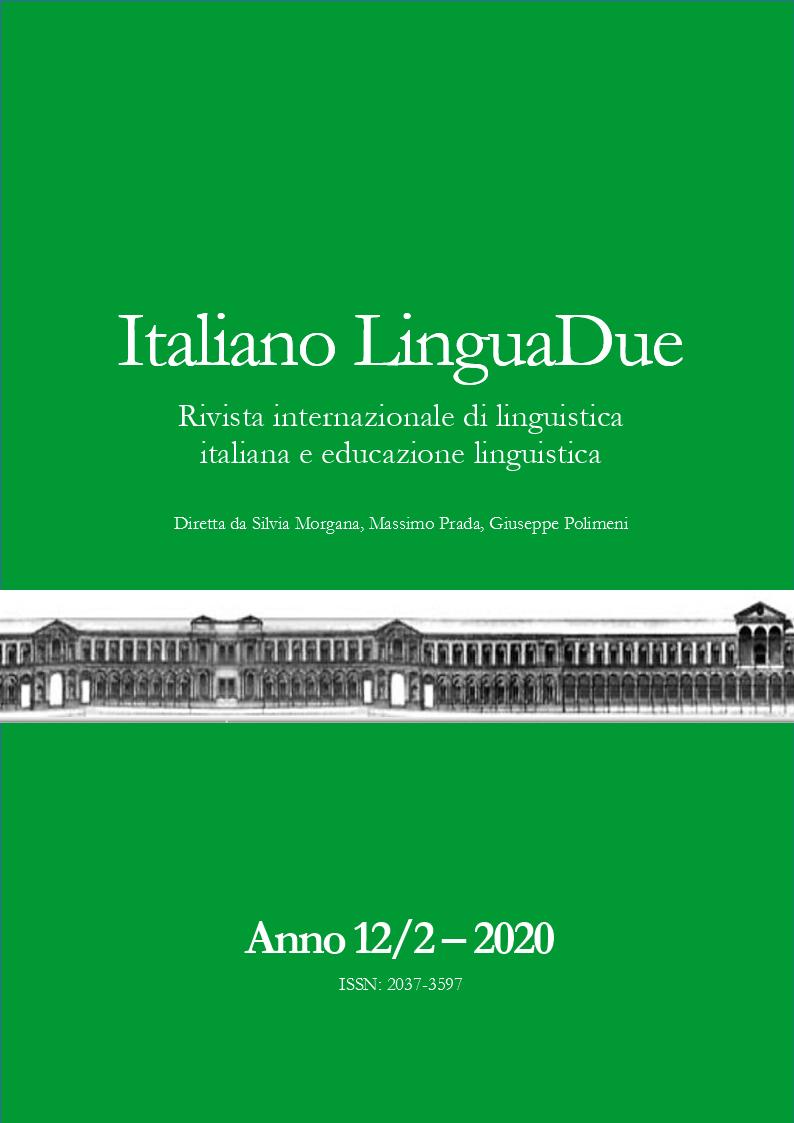L’ITALIANO NEL TURCO
DOI:
https://doi.org/10.13130/2037-3597/15056Abstract
Come si sa, i rapporti diplomatici e commerciali tra l’Italia e la Turchia attraverso i secoli sono stati sempre molto stretti e hanno lasciato delle tracce nella lingua parlata e scritta. Ancora oggi si incontrano parole di origine italiana nel turco, in particolare nel campo bancario e in quello marittimo. È chiaro che i turchi sono stati influenzati dagli italiani in molti aspetti, anche perché sono stati gli europei più presenti nelle terre anatoliche e a Istanbul da secoli. Alcune parole sono state prese direttamente dall’italiano mentre altre hanno subito cambiamenti, perdendo il loro significato originale e, talvolta, anche la pronuncia originale. Un motivo dell’inserimento e accettazione di parole italiane in turco può essere, come notano tanti studiosi tra cui Bonelli, la lacuna in certi campi lessicali, dalla marina all’industria di termini. Non si può negare il ruolo dei viaggiatori nel ‘trasporto’ di alcune parole importanti della quotidianità italiana in turco. Il romano Pietro Della Valle, come si legge in “Viaggiatori del Seicento” di Guglielminetti, introduce il caffé/cahve e il sorbetto/lo scerbet in Europa. Dopo la fondazione della Turchia moderna e le rivoluzioni di Atatürk c’è stato un momento in cui si è tentato di purificare la lingua turca dalle parole straniere. Non si può dire che tale tentativo abbia avuto successo perché ancor’oggi si usano molte parole italiane in turco. Questo contributo intende presentare le parole italiane correnti nel turco antico e moderno e mostrare il loro modo d’impiego, facendo riferimento agli studi sull’argomento fatti in Italia e in Turchia.
Italian in Turkish
As is well known, the diplomatic and commercial relationships between Italy and Turkey have been strong throughout the centuries and they have left traces in both spoken and written language. Even today, words of Italian origin can be found in Turkish, especially in the banking and maritime sectors. It is clear that Turks have been influenced by Italians in many aspects, due for example to the presence of Europeans in Anatolia for many centuries. Some words have been taken directly from Italian whereas some have undergone changes, losing their original meaning and, sometimes, even their original pronunciation. One of the reasons for the introduction and acceptance of Italian words in Turkish could be, as observed by many scholars including Bonelli, the lack of terms in the aforesaid fields. The role of travelers in ‘transporting’ important words pertaining to daily life in Italy to Turkey was certainly crucial. In “Viaggiatori del Seicento” (Travelers of the Seventeenth Century) by Marziano Guglielminetti, the Roman traveler Pietro Della Valle introduced the words for ‘coffee’ and ‘sorbet’ to Europe. Following the foundation of modern Turkey and the revolutions of Atatürk, there was a ‘puristic’ period in which efforts were made to purge foreign words from the Turkish language. This attempt was unsuccessful, and still today many loanwords are used in Turkish. This article presents Italian words used in older and contemporary Turkish and their use, based on studies carried out in both Italy and Turkey.




